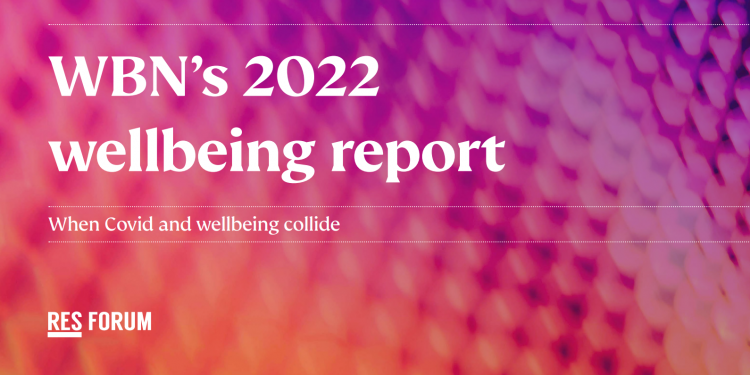Mental wellbeing has been a key focus for employers across the globe in the past year, according to the Worldwide Broker Network (WBN) 2022 wellbeing report.
Mental wellbeing saw the most investment over the last 12 months and while business leaders said all areas of wellbeing required investment, 91% recognised mental wellbeing as needing more focus and 69% ranked mental wellbeing as highly important.
More companies are measuring wellbeing performance than ever before – 50% compared with 45% in 2021.
And remote work has evolved into international remote work which has given rise to concepts such as the ‘work from anywhere’ movement and the ‘distributed workforce’.
But perhaps surprisingly there were dips in the overall importance of wellbeing within organisations and mobility operations.
Only 78% ranked wellbeing as important for the whole organisation in 2021 compared with 100% in 2020, with a similar fall from 100% to 76% within global mobility programmes.
The report suggested hot topics such as environmental, social and governance (ESG) and diversity issues stealing focus as employees return to office within organisations.
And WBN noted that against a backdrop of fewer long term assignments and businesses choosing to only send people on shorter term projects or business trips due to fears about them being locked down in a foreign country, this may have reduced the emphasis on wellbeing for mobility schemes.
Global wellbeing strategies growing
The report, produced in partnership with RES Forum, also found while 37% of respondents now use a global employee wellbeing strategy.
“This would have been significantly less three years ago, and we see this growing as more employers engage with their advisers and realize the value in transforming wellbeing measures into a more strategic approach,” WBN said.
“And building that approach doesn’t mean making a choice between local and global providers – there’s still a place for both, and the right decision will likely depend on the location in question.”
While in 2020 there was a 50/50 split between respondents who favoured global providers over local providers, in 2021 this split had moved to 80/20 in favour of local providers.
The report claims businesses are facing new challenges after the pandemic and are starting to settle on a global wellbeing strategy. The report suggests there is a possibility that great service delivery in country from global providers is perceived as local.
Multidimensional wellbeing is increasingly being seen as important by respondents as participants agreed across the board around an increasing need for all types of wellbeing, including multidimensional wellbeing strategies.
Other key findings of the report include:
- When it comes to where wellbeing fits into corporate strategies, 65% said it formed part of their employee benefits strategy and 6% within their global mobility strategy. For 19% it featured in both and for 10% elsewhere.
- Cost (26%), time (26%) and low benefits (10%) were among the top elements preventing a wellbeing approach being advanced at respondents’ companies but company culture (17%) and management buy-in (13%) were also cited as barriers by respondents.
- A quarter of respondents said the past 12 months had not changed their attitude to globally mobile employees and wellbeing.
- When asked whether respondents would be more likely to use wellbeing solutions such as a global employee assistance or global wellness programme if they could be rolled out globally, 62% of respondents said yes and 38% no. In 2020 85% answered yes to this question.
- The main objectives businesses want wellbeing strategies to meet were duty of care and staff engagement.
- 28% of respondents believed their globally mobile employees did not think their wellbeing package was attractive while 60% believed their employees were happy with the wellbeing package on offer.
- Just under half said they had a specific budget for wellbeing delivery.
- 63% said they thought their wellbeing program could retain staff – down from 82% in 2020.






